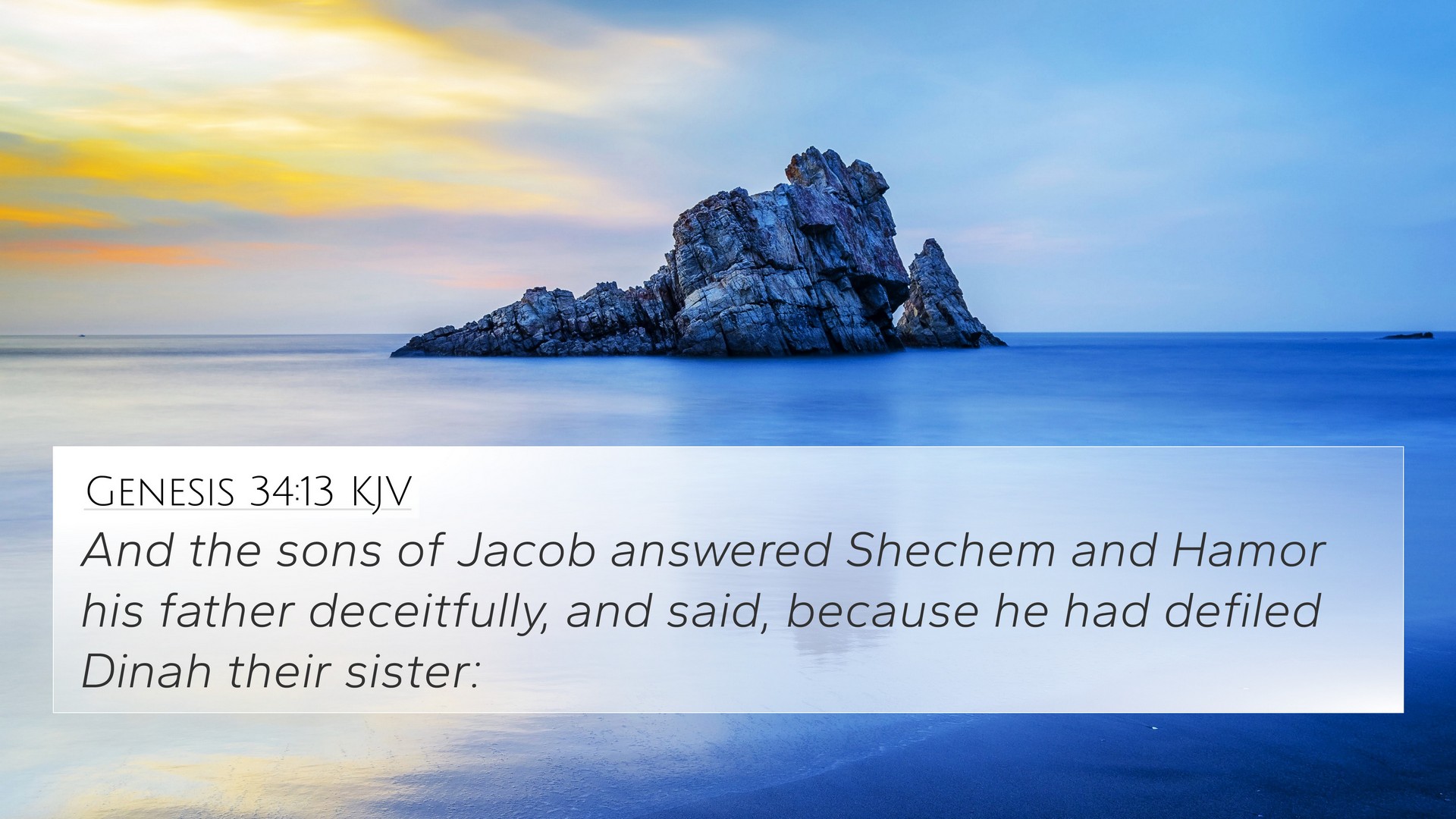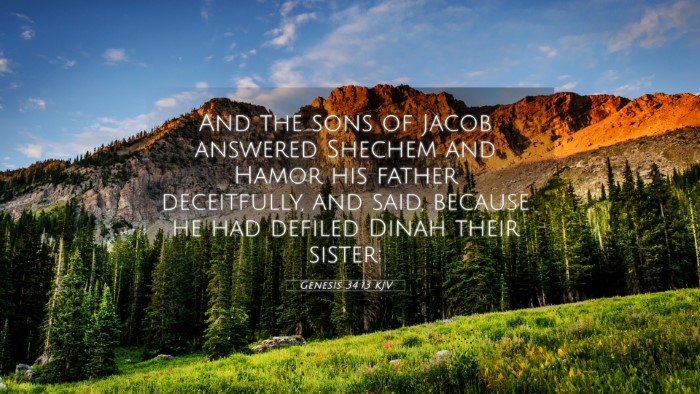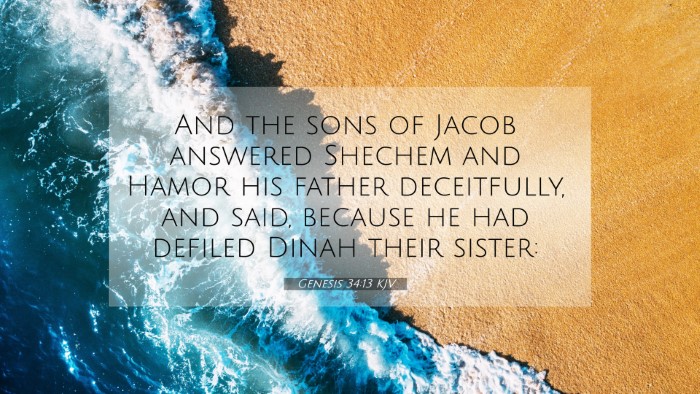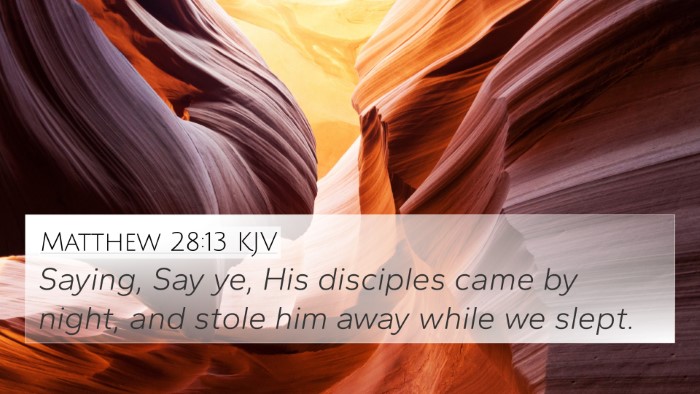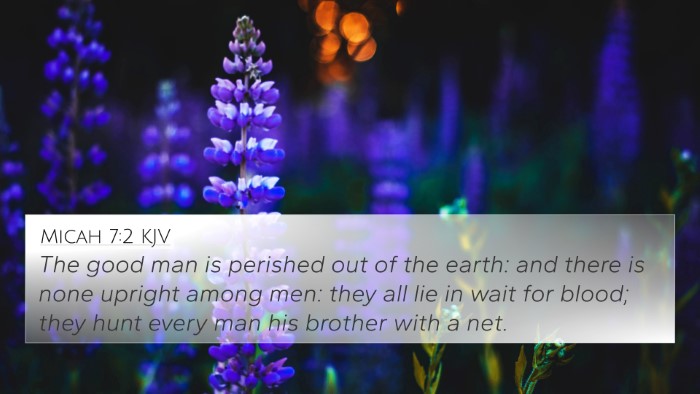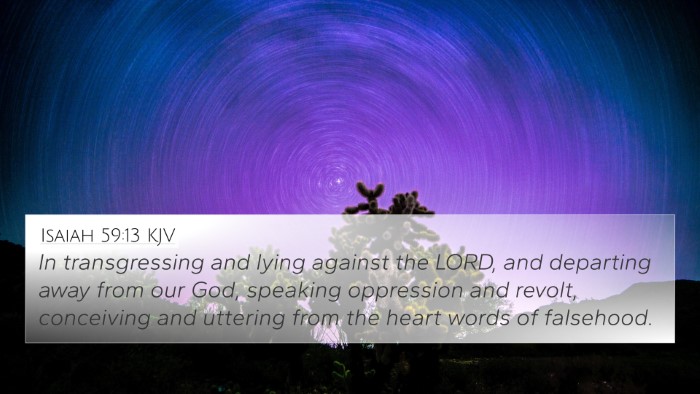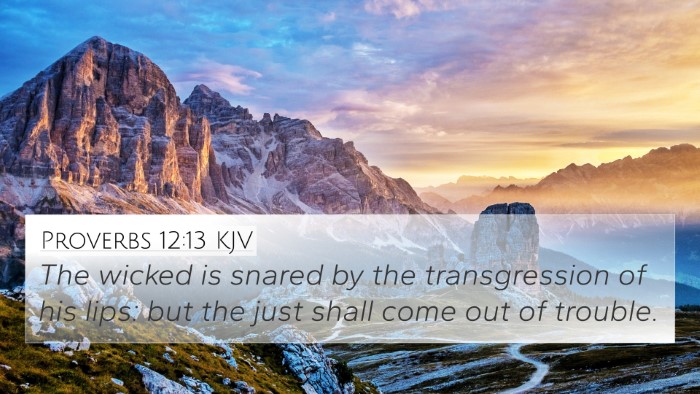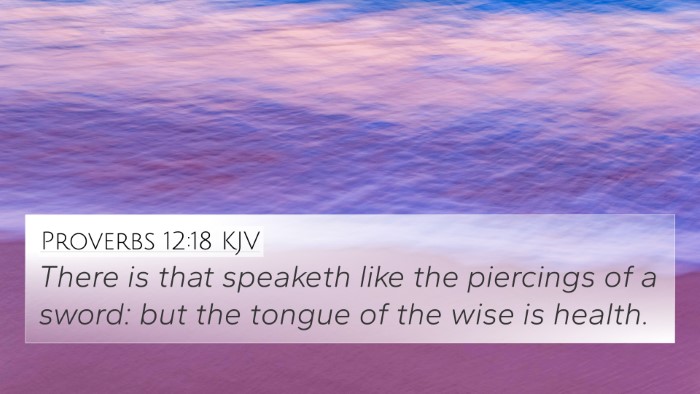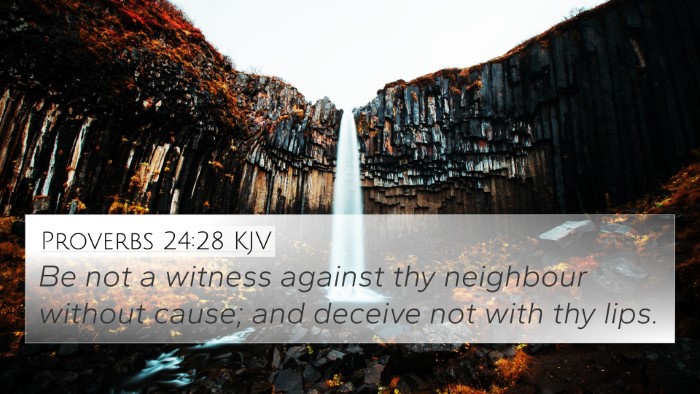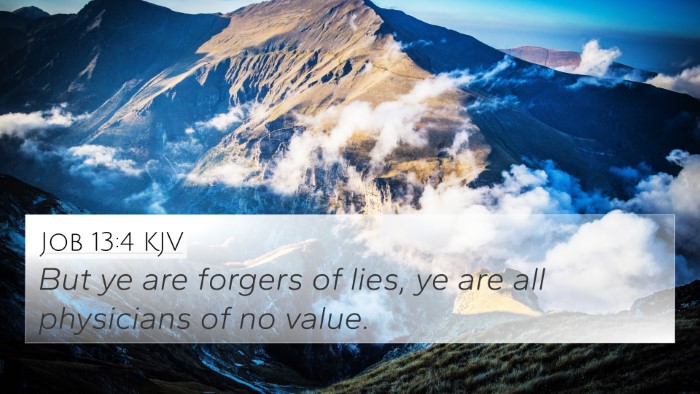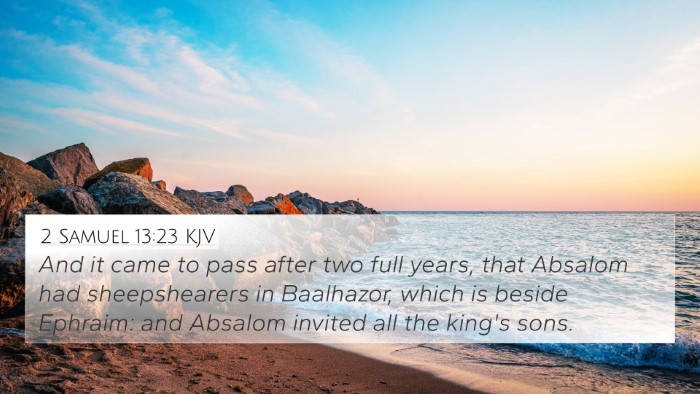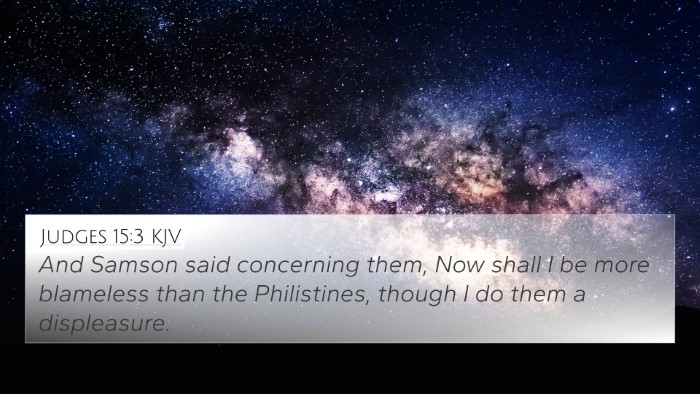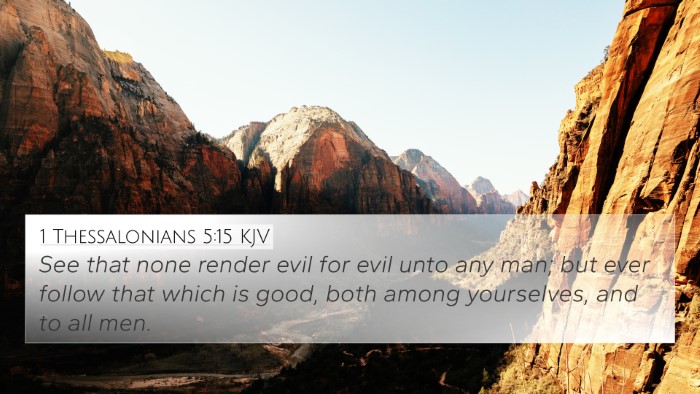Understanding Genesis 34:13
Genesis 34:13 states: "And the sons of Jacob answered Shechem and Hamor his father deceitfully, and said, Because he had defiled Dinah their sister." This verse comes from a troubling narrative that explores themes of honor, vengeance, and deceit. In this context, it is crucial to grasp the implications of these actions and the ramifications that unfold from them.
Contextual Background
The events in Genesis 34 take place after the incident involving Shechem, the son of Hamor, who violated Dinah, the daughter of Jacob. This act is significant in the ancient Hebrew culture, as it not only brought disgrace upon the family but also posed a threat to their lineage. Dinah's brothers, led by Simeon and Levi, reacted furiously to this violation, and their responses lead to escalated conflict.
Commentary Insights
Matthew Henry's Commentary
Matthew Henry notes that the deceit used by Jacob’s sons emphasizes their cleverness to meet justice with their own plans of vengeance. They masked their true intentions under the guise of negotiating a marriage, revealing their frustration and sense of honor. Their actions also question the moral periphery of vengeance and honor at the cost of deception.
Albert Barnes' Commentary
Albert Barnes highlights the “deceitful” nature of their response, stressing that the brothers did not approach the situation with honesty. Instead, they took advantage of Shechem's desire to marry Dinah to execute their plan. This reflects the darker side of human nature, where vengeance and justice intertwine, illustrating the trope of revenge in biblical narratives.
Adam Clarke's Commentary
Adam Clarke points out that the act of answering “deceitfully” indicates a calculated and premeditated approach, reinforcing the idea that the brothers were prepared to seek violent retribution. Clarke also draws attention to the importance of Dinah's status in the narrative and how her treatment spurred duplicity in her brothers, illustrating the tension between familial loyalty and ethical conduct.
Thematic Connections
Genesis 34:13 is pivotal not just within its chapter but also serves as a bridge to broader themes within scripture:
- Justice and Vengeance: The actions of Jacob’s sons resonate with themes found in Name the book: Deuteronomy 19:21, where retaliatory practices are examined.
- Covenant and Honor: The violation of Dinah highlights issues of covenantal relationships, paralleling other biblical incidents, such as Name the book: 2 Samuel 13:14 concerning familial honor.
- Deceit as a Tool: The tactic used by the brothers to deceive Shechem echoes back to narratives of deceit in Name the book: Genesis 27:35, where Jacob himself deceives his father Isaac.
- Divine Retribution: The unfolding consequences of this deceit can be connected to Name the book: Galatians 6:7 regarding reaping what one sows.
- Women’s Agency: Dinah's narrative also opens discussions on female agency in biblical texts, paralleling Name the book: Esther 4:14, where a woman’s courage changes the course of history.
- Family Conflict: The dynamics of family honor and conflict can be compared to Name the book: Genesis 37:4 when Joseph's brothers plot against him, illustrating inter-family strife.
- Law and Morality: The moral questions raised in this chapter echo the legalistic perspectives found in Name the book: Exodus 21:16, exploring the severity of violations against women.
Bible Verse Cross-References
Related Bible verses that deepen our understanding of Genesis 34:13 include:
Conclusion
Genesis 34:13 serves as a crucial text for examining interpersonal relationships, the complexities of justice, and the moral ambiguity reflected in the actions of Jacob's sons. The narratives surrounding this verse encourage us to consider the broader implications of our choices and serve as a reflection on the consequences of deceit and vengeance in our lives.
For those exploring Bible verse cross-references or seeking connections between Bible verses, this verse can guide discussions about how familial obligations can sometimes cloud moral judgment. It raises vital questions about how modern readers can apply these ancient principles of honor, deceit, and the pursuit of justice in their lives today.
